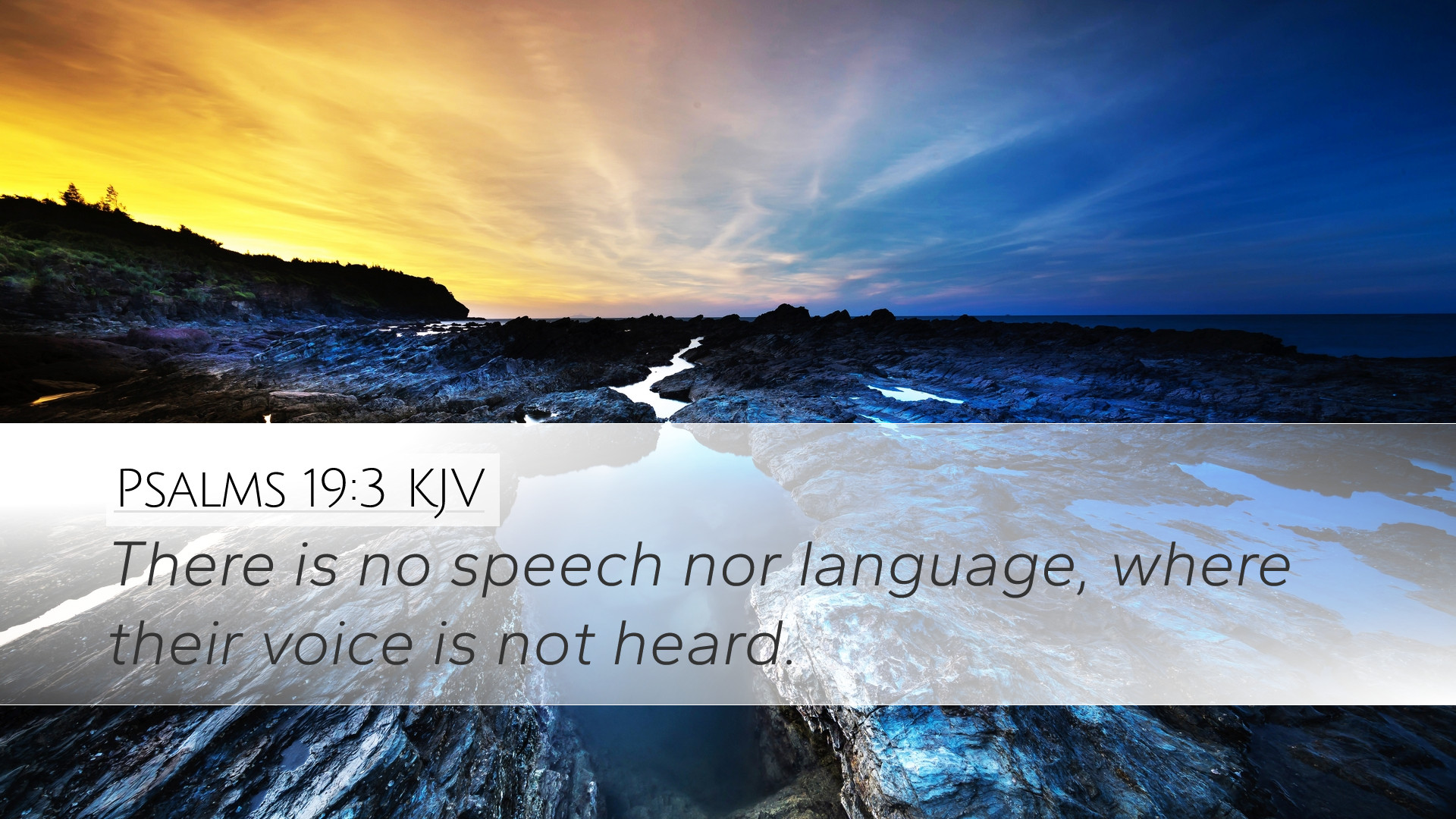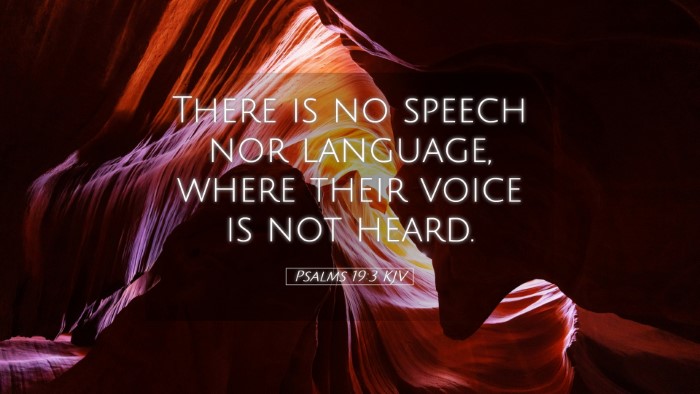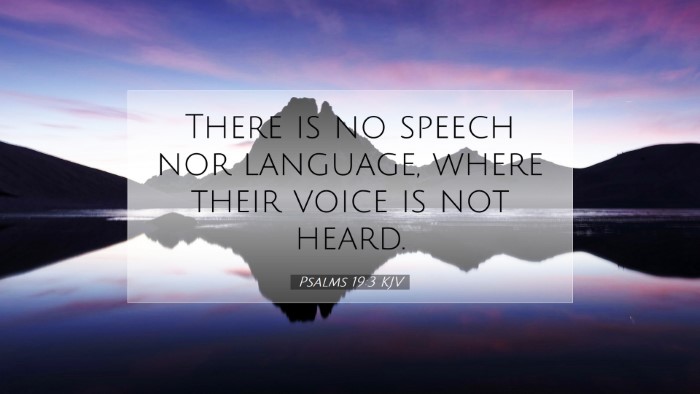Psalms 19:3 Commentary
Verse: "There is no speech nor language, where their voice is not heard."
This verse, nestled within the broader context of Psalm 19, serves as a profound reflection on the universal nature of God’s revelation through creation. The psalmist conveys the idea that the heavens and the celestial bodies proclaim the glory of God, transcending linguistic and cultural barriers.
Contextual Overview
The 19th Psalm is often divided into two distinct sections: the first half (verses 1-6) discusses general revelation through nature, while the second half (verses 7-14) focuses on special revelation through the law. Verse 3 specifically emphasizes the idea that creation itself speaks, and its message is comprehensible to all mankind.
Insights from Matthew Henry
Matthew Henry, in his exhaustive commentary, highlights the significance of God’s creation as a pervasive witness to His power and divine nature. He asserts that:
- The "voice" of creation is silent yet eloquent; it communicates without the need for words.
- Each element of creation—be it the sun, the stars, or the earth—bears testimony to its Creator.
- This universal proclamation of God ensures that no one is without excuse regarding their knowledge of Him (Romans 1:20).
Henry emphasizes the harmony of nature speaking a singular truth, suggesting that the intricacies and wonders of the cosmos beckon humanity to recognize God’s greatness.
Insights from Albert Barnes
Albert Barnes offers a complementary perspective, underscoring the absence of any linguistic constraints when it comes to the declaration of God's glory:
- Barnes notes that every nation, regardless of its language or culture, can perceive the witness that nature provides.
- He posits that while people speak different languages, the "voice" of the heavens is understood universally, creating a sense of unity in humanity's quest for God.
- In this way, creation becomes a bridge across which God's message flows freely to all.
This interpretation serves as a reminder that God’s truth is accessible to everyone, and the beauty of nature invites all to explore and affirm their understanding of the divine.
Insights from Adam Clarke
Adam Clarke delves deeper into the poetic nature of the psalmist's declaration. He comments on the stylistic elements that enhance its meaning:
- Clarke observes that the phrase "there is no speech nor language" points to the silent yet profound declaration of God through the cosmos.
- He suggests that the "voice" of creation resonates with an emphasis on the awe-inspiring order and majesty that defines the universe.
- For Clarke, this divine communication invites not only reverence but also encourages personal reflection and acknowledgment of God's creative power.
Clarke's emphasis on the beauty and order found in creation aligns with the notion that such attributes serve as a testament to the Creator’s character.
Theological Implications
As we analyze Psalms 19:3 through the lenses of these esteemed commentators, several theological implications emerge:
- The Universality of Revelation: The verse boldly asserts that God reveals Himself through creation to every person on Earth, reinforcing the doctrine of universal revelation.
- Responsibility of Humanity: With such revelation comes responsibility; humanity is called to respond to the truth that creation communicates about God's nature.
- The Role of Creation in Apologetics: These insights encourage believers to engage with the created world as a means of defending their faith and sharing the Gospel, as the evidence of God is visibly presented in the universe.
Conclusion
Psalms 19:3 serves as a powerful reminder to pastors, students, theologians, and scholars of the significance of creation as a vehicle of divine revelation. The chorus of the created world calls all of mankind to perceive and acknowledge the majesty of God. In an age marked by division and confusion, this scripture invites unity through the universal language of the cosmos, imploring all to listen to the silent, yet resounding testimony of God's existence and glory.


